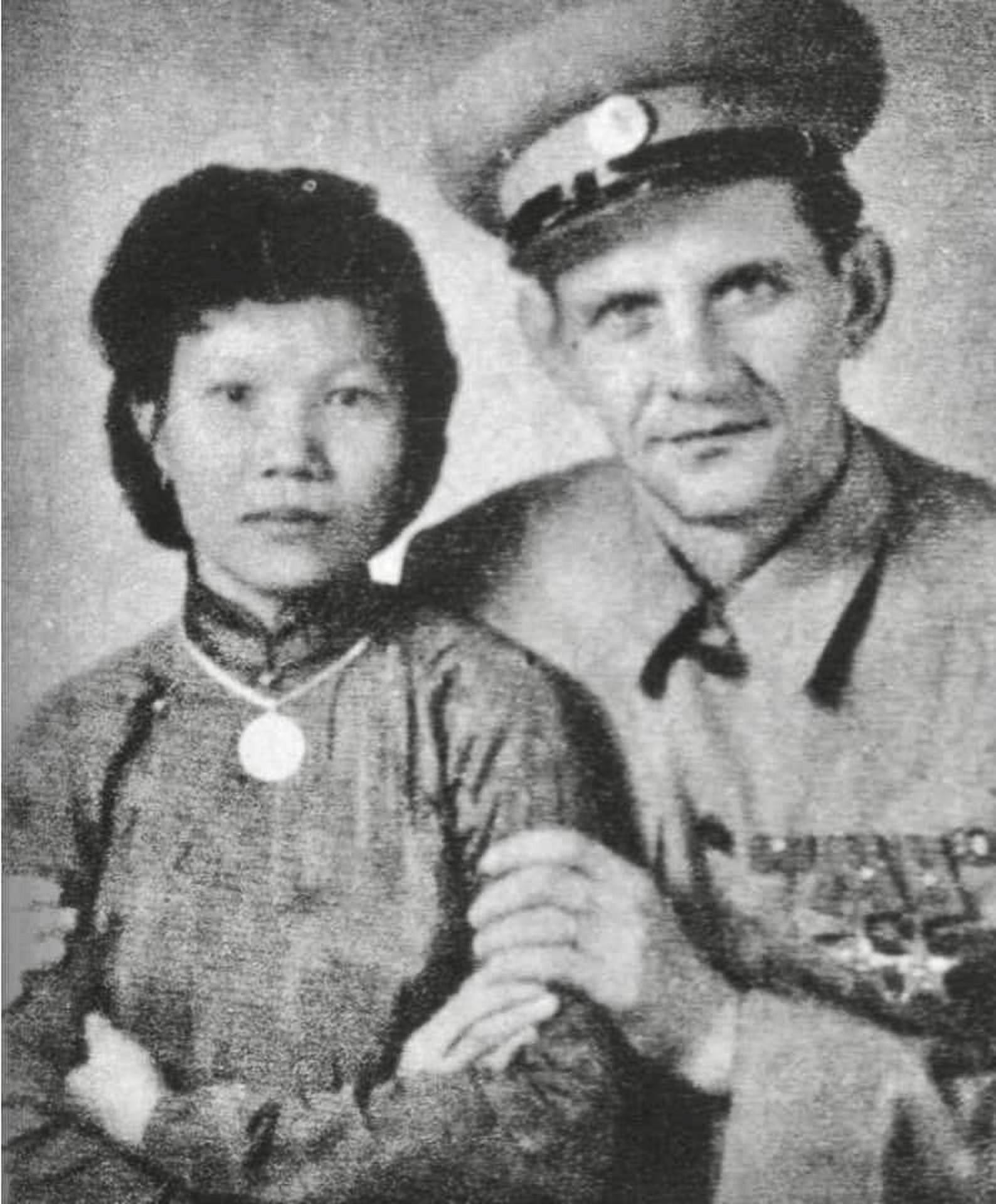Uncle Ho with the newspaper doing enemy propaganda work
(Baonghean.vn) - President Ho Chi Minh was very interested in enemy propaganda work. In 1948, he said: "To defeat the enemy by fighting is good. To defeat the enemy without fighting is even better. To win without fighting is thanks to enemy propaganda". Therefore, he was very interested in the newspaper "Combatant" (Waffenbrüder) - a newspaper written in German and French by our Party and State for Mr. Erwin Borchers (a German, a French legionnaire who deserted to join us), used to call on legionnaires to abandon the path of serving the French colonialists.
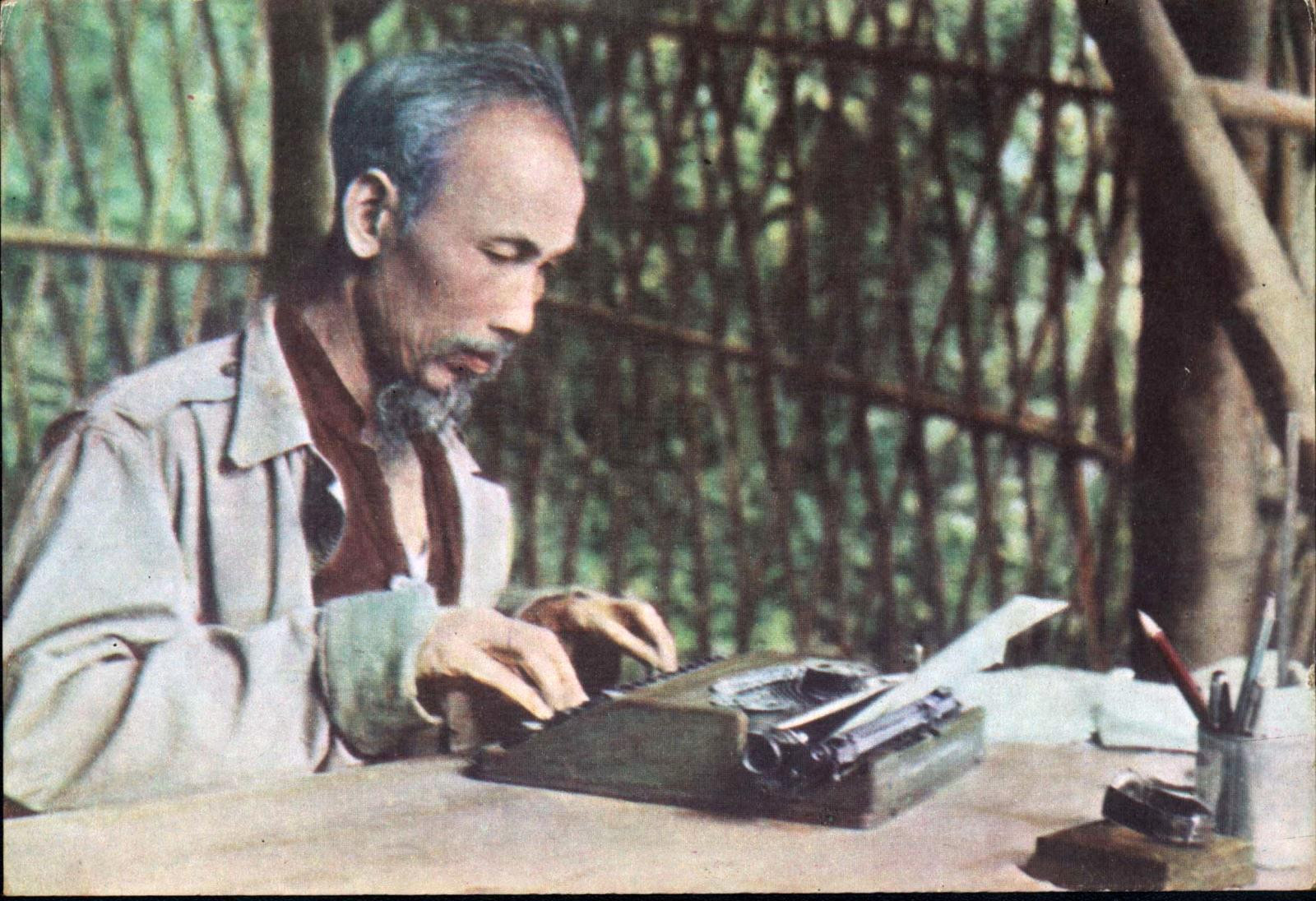 |
President Ho Chi Minh. Photo: Historical documents |
Why is there a newspaper "Fighting Friends"?
After World War II (1939-1945), France did not hide its ambition to return to Indochina. However, because France's military potential was destroyed by Nazi Germany during the occupation (1941-1944), the country used the Foreign Legion in addition to the French army and soldiers from the North African colonies.
The Foreign Legion were foreign mercenaries for France. This army was established in 1831 and still exists today. According to statistics, from 1946 to 1954, 72,833 Foreign Legion officers and soldiers fought in the Indochina battlefield.
However, upon seeing the brutality of the French colonialists, many legionnaires deserted to join the Viet Minh. In 1947, French Minister of War Paul Coste Floret asked President Ho Chi Minh to return the legionnaires who had deserted and joined the Viet Minh, but he refused despite all threats.
Among them was Erwin Borchers (German), a French legionnaire who joined the Viet Minh as early as 1945. After joining the Viet Minh, he worked at the newspaper "The People" (Le Peuple) published in French with content serving the enemy's propaganda work.
Later, when the National Resistance War broke out (December 19, 1946), he was in charge of enemy agitation work with the main targets being German legionnaires and European legionnaires. Because the number of Germans in the French legion reached tens of thousands, our Party and State directed him and his colleagues to write and publish the newspaper “Combatants” (Waffenbrüder) in German and French.
Following the instructions of his superiors, he wrote many articles for the newspaper under the pen name “Chien Si”. The printed newspaper was immediately given to the guerrillas to distribute around enemy posts to call on legionnaires of German origin and even legionnaires of European origin to abandon the path of serving the French colonialists.
Letter to the newspaper "Combatant" by President Ho Chi Minh
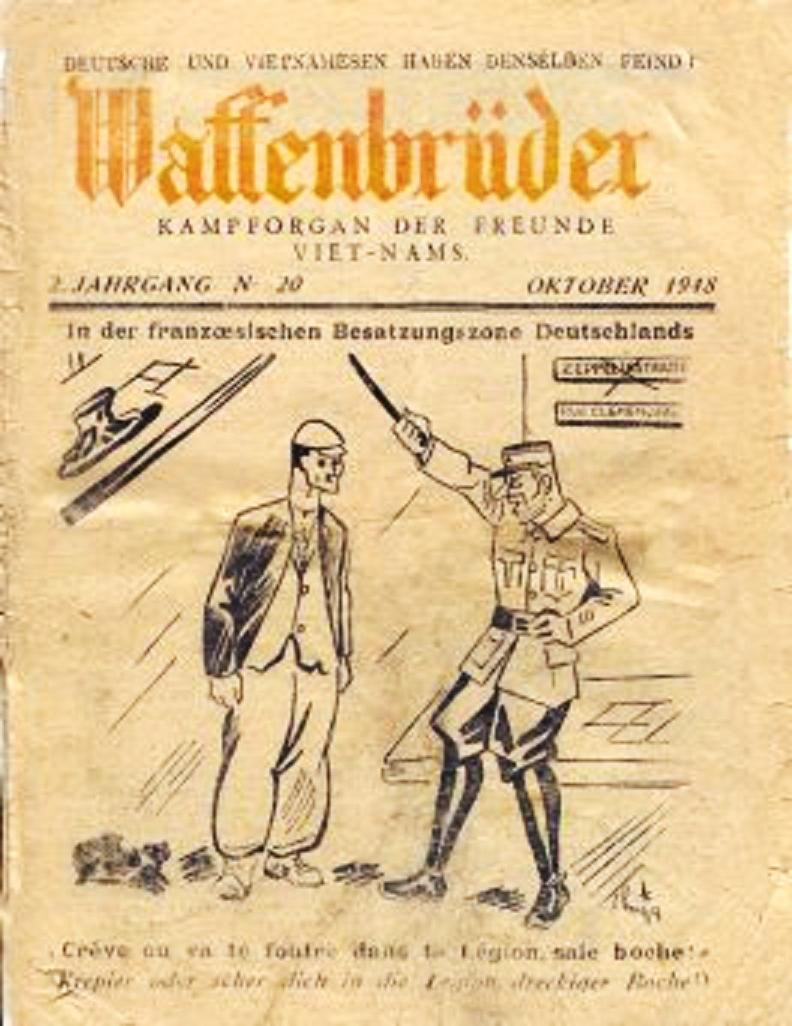 |
Newspaper “Fighting Friends” (Waffenbrüder). Photo: Historical documents |
President Ho Chi Minh once shared: “My experience is this: Every time I write an article, I ask myself: Who am I writing for? What is the purpose of writing? How can I write it so that it is easy for the general public to understand, concise and easy to read? When I finish writing, I ask my colleagues to review and correct it for me”[1] and he emphasized “The mission of journalism is to serve the people, to serve the revolution”[2].
To contribute ideas on the form and content to help the newspaper “Combatants” win the sympathy of readers who are legionnaires, President Ho Chi Minh wrote a letter to the newspaper “Combatants” (February 10, 1948). In the letter, he wrote:
Dear friends,
Thank you very much for the issues of Ban Chien Bat. Here are a few small suggestions for you: this newspaper is for legionnaires, funny, irritable, emotional guys, not for those who are deeply political.
Therefore, there was a need for humorous pictures and drawings, things that made them laugh, short news about Germany and France – especially news that concerned the lives of the people (such as insufficient food supplies, strikes, harassment by the governing bodies…).
In short, we need to move them, make them comfortable, make them laugh and cry to attract them to our side.
Don't write long articles.
Don't write about major political issues of the day.
What do you think?
A few months later, a reporter from the newspaper “Combatants” interviewed President Ho Chi Minh. Newspaper “Cuu Quoc” No. 938 dated May 25, 1948, branch No. 6, printed in Lien Khu X, reprinted his answer.
- Ask:Mr. President, what do you hate most?
- Reply:Evil.
- Ask:What does the president wish for most?
- Reply:The independence of my country and of all countries in the world.
- Ask:Mr. President, what are you most afraid of?
- Reply:Fear nothing. A patriot fears nothing and must not fear anything.
In 1950, the newspaper “Combatants” changed its name to “Return” to further call on legionnaires to abandon their path of serving the French colonialists. In 1951, the Enemy Movement Conference popularized the motto of mobilizing European and African soldiers to fight as “demanding repatriation and peace in Vietnam”, considering it as the central slogan.
Therefore, according to statistics, during the resistance war against French colonialism (1946-1954), 1,373 legionnaires and 288 French soldiers deserted to join the Viet Minh. Many of them made significant contributions in the command, staff, engineering, training, military medicine, military equipment, propaganda... sectors of our revolution.
At the end of February 1954, Erwin Borchers arrived in Dien Bien Phu with his propaganda team. They dropped leaflets and used loudspeakers to call on the Foreign Legion and North African units to lay down their arms.
With the victory of Dien Bien Phu (May 7, 1954), the resistance war against French colonialism ended in victory. The world's largest newspapers simultaneously reported on this victory that "resounded throughout the five continents and shook the earth." In particular, the American Time magazine on November 22, 1954 wrote that this was "the feat of an Asian army defeating their former "bosses" from Europe."
“Under the leadership of Ho Chi Minh, the Viet Minh force had the most effective jungle fighting army in Southeast Asia, the most talented general in Southeast Asia, Vo Nguyen Giap, the most solid political organization headed by Ho Chi Minh, and experienced leadership” – Time magazine continued to comment.
Comrade William Foster, Chairman of the American Communist Party, wrote in the “Worker’s Daily” on May 10, 1954 as follows: “The destruction of the Dien Bien Phu stronghold by Ho Chi Minh’s army was an event of great significance. This defeat was not only a disastrous defeat for the French colonialists, who had risked their lives to plot to invade the rich and beautiful Indochina, but first of all, it was a great failure of the American imperialists’ war of aggression plan… The victory at Dien Bien Phu was a great encouragement for the forces fighting against imperialism in the colonies and semi-colonies, at the same time the development in Indochina in the recent period has promoted and strengthened the resistance to the brutal control policies of the United States in other capitalist countries…”.
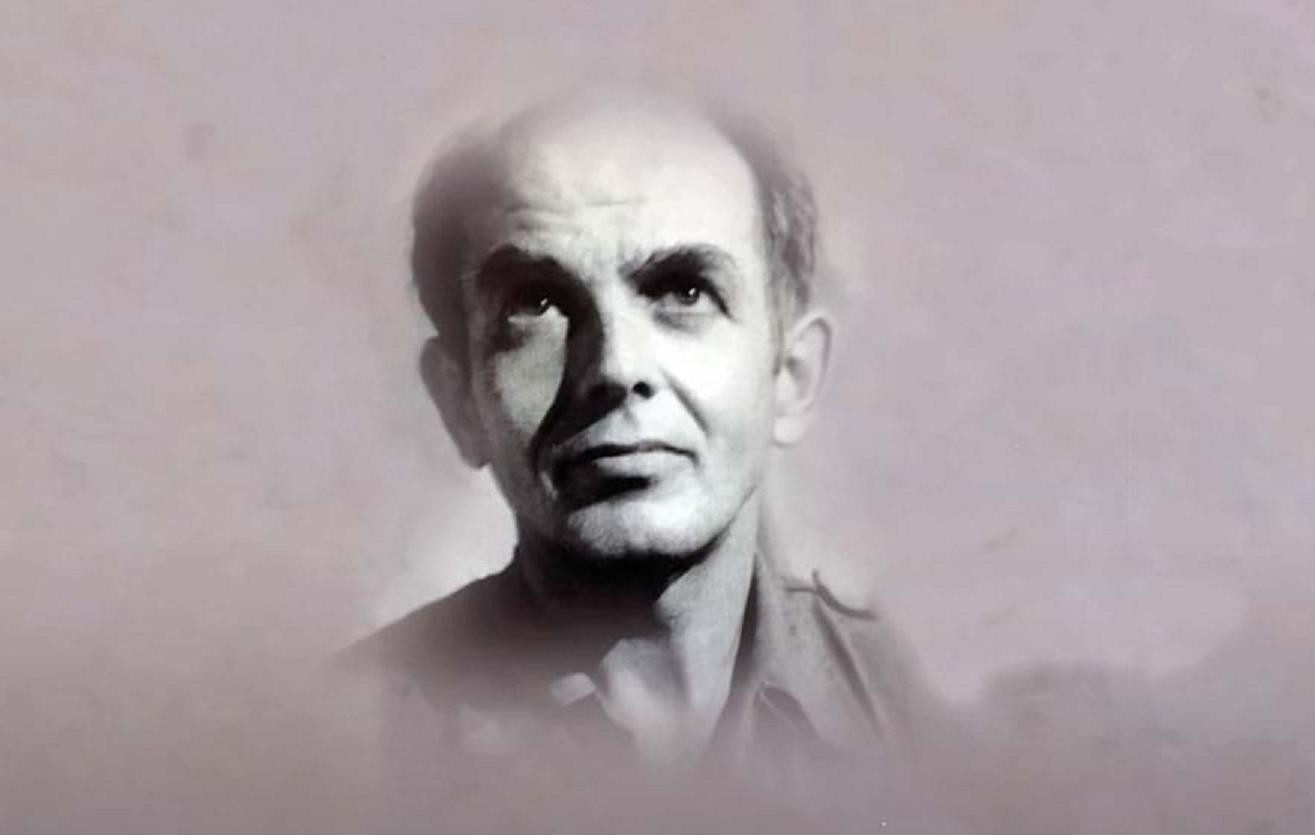 |
Mr. Erwin Borchers (German), a French legionnaire, joined the Viet Minh as early as 1945. He and his comrades published the newspaper “Fighting Friend” (Waffenbrüder) to mobilize French legionnaires to join the Viet Minh in the resistance war against France. |
French Foreign Legion Soldiers Become “New Vietnam” Soldiers
The “New Vietnam” soldiers were foreigners who volunteered to join the ranks of the Vietnam People’s Army in the struggle for national independence. Among them were French Foreign Legion soldiers who deserted to join the revolution. Below are two typical “New Vietnam” soldiers.
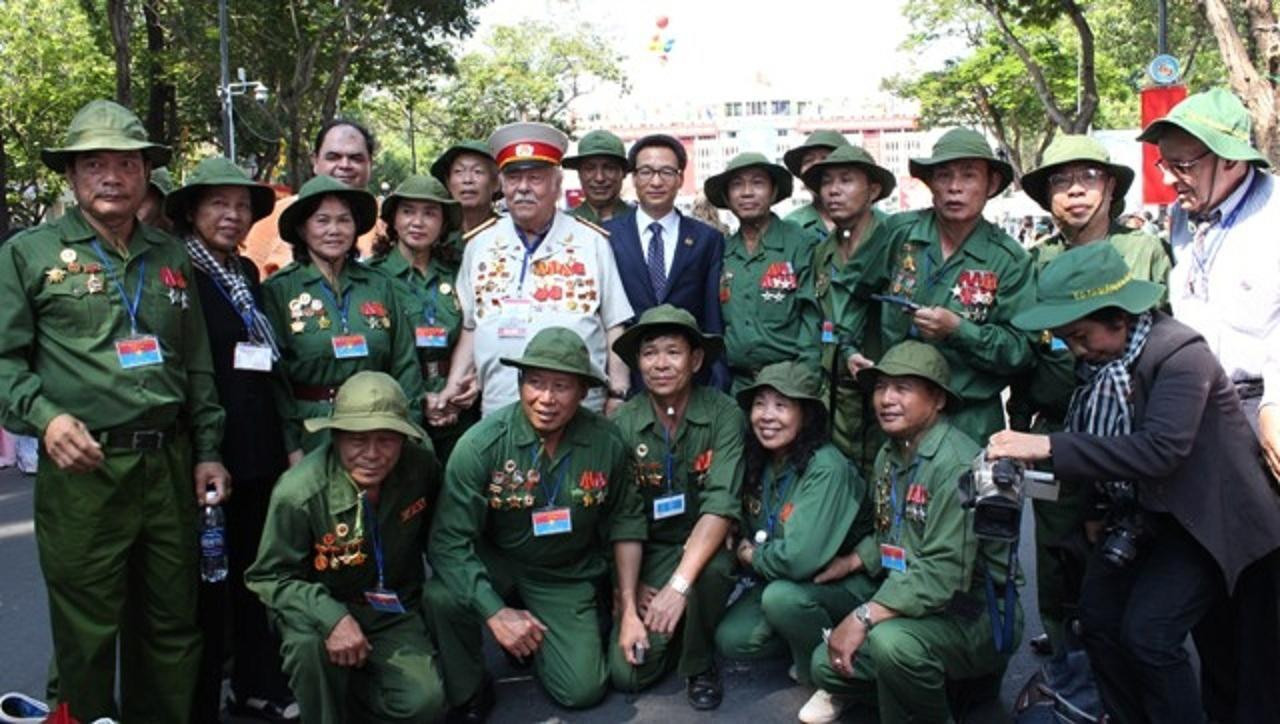 |
Mr. Kostas Sarantidis, also known as Nguyen Van Lap - Hero of the People's Armed Forces (white shirt) and his former comrades in Inter-Zone V took a souvenir photo with Deputy Prime Minister Vu Duc Dam. Photo: Historical documents. |
Mr. Kostas Sarantidis (Hero of the People's Armed Forces):
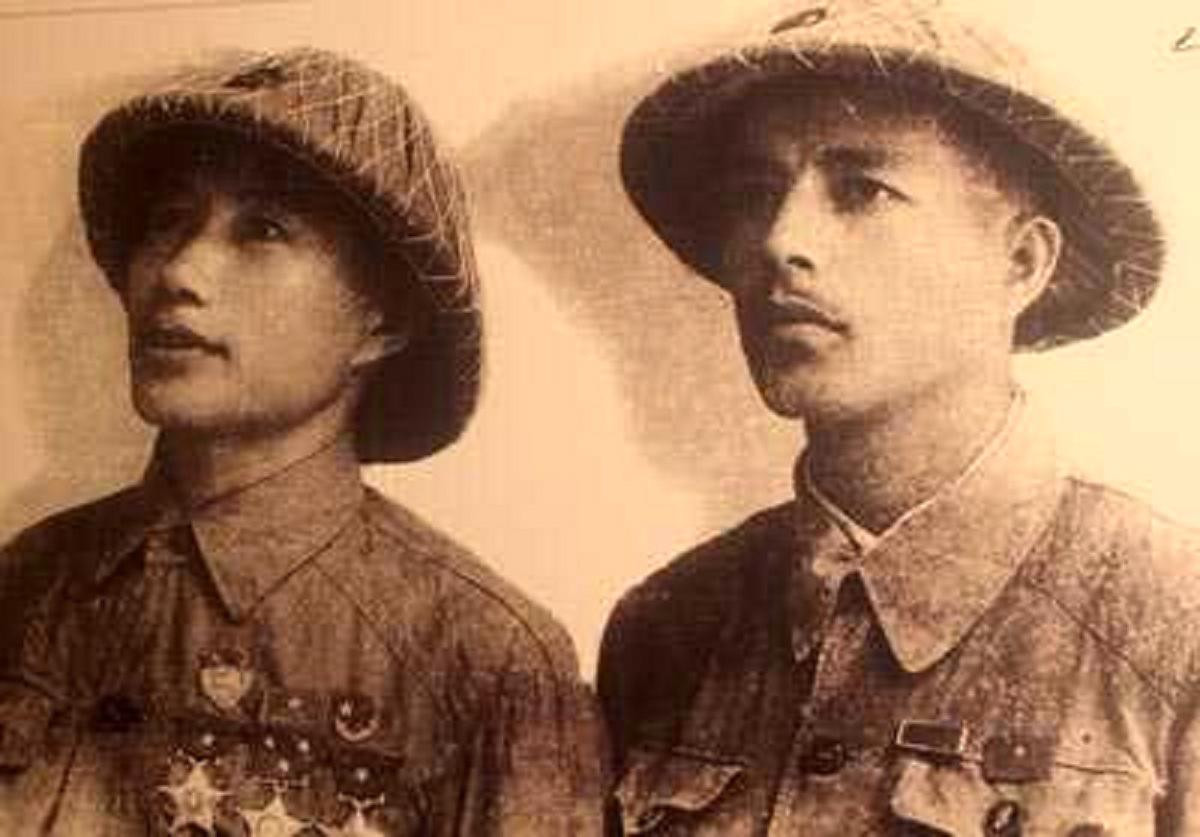 |
Mr. Kostas Sarantidis (right) and his comrades in the ranks of "Uncle Ho's soldiers". Photo: Historical documents. |
From a legionnaire who believed in the deception of the French colonialists that he went to Indochina to "liberate" the countries there from Japanese fascism, in June 1946, Mr. Kostas Sarantidis (born in 1927 in Greece) joined the ranks of "Uncle Ho's Army".
Later, he recalled: “When we arrived, we realized we had been tricked. We didn’t see any Japanese. Instead, we were ordered to fight with the Viet Minh! We were people who had been colonized for nearly 400 years. From young to old, no one wanted to fight or invade anyone.”
During the resistance war against France (1946-1954), with the Vietnamese name Nguyen Van Lap, he was assigned by the Party and State to do many jobs in regular military units of Inter-Zone 5, and was present in many fierce battles in the Central region.
When he was assigned to be the warden of the Euro-African Prison Camp No. 3 in Quang Ngai, he did a good job of educating them, making them understand the just cause of Vietnam against the invaders and the humanitarian policy of the resistance government.
Three years after participating in the resistance war against France, he was admitted to the Indochinese Communist Party. After the Geneva Agreement in 1954, he gathered in the North and became the leader of the Supply Platoon at Gia Lap Airport, worked as a truck driver in the Na Duong coal mine, Cao Bang tin mine, and worked as an interpreter for experts from the German Democratic Republic at the Tien Bo Printing Factory.
In 1965, he returned to Greece with his family, where his elderly mother still lives. He joined the Greek Communist Party and worked to foster Greece-Vietnam relations. In 2013, he was awarded the title of Hero of the People's Armed Forces by the Party and State.
Mr. Stefan Kubiak (who is honored to bear the last name of Uncle Ho):
Stefan Kubiak (Polish), Captain of the Vietnam People's Army Ho Chi Toan. He was previously a French Foreign Legionnaire who deserted to the Viet Minh. Photo: Historical documents |

